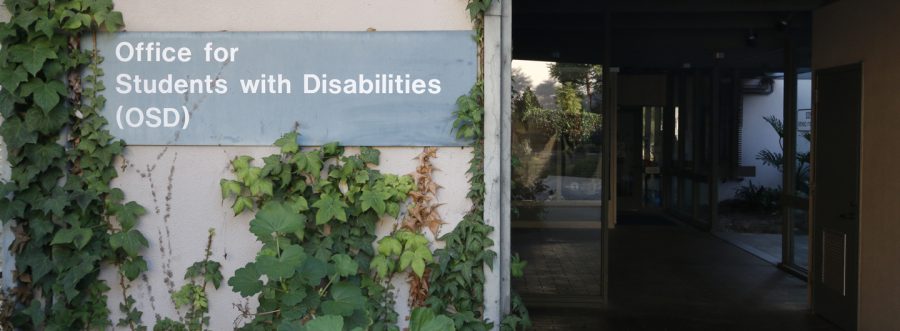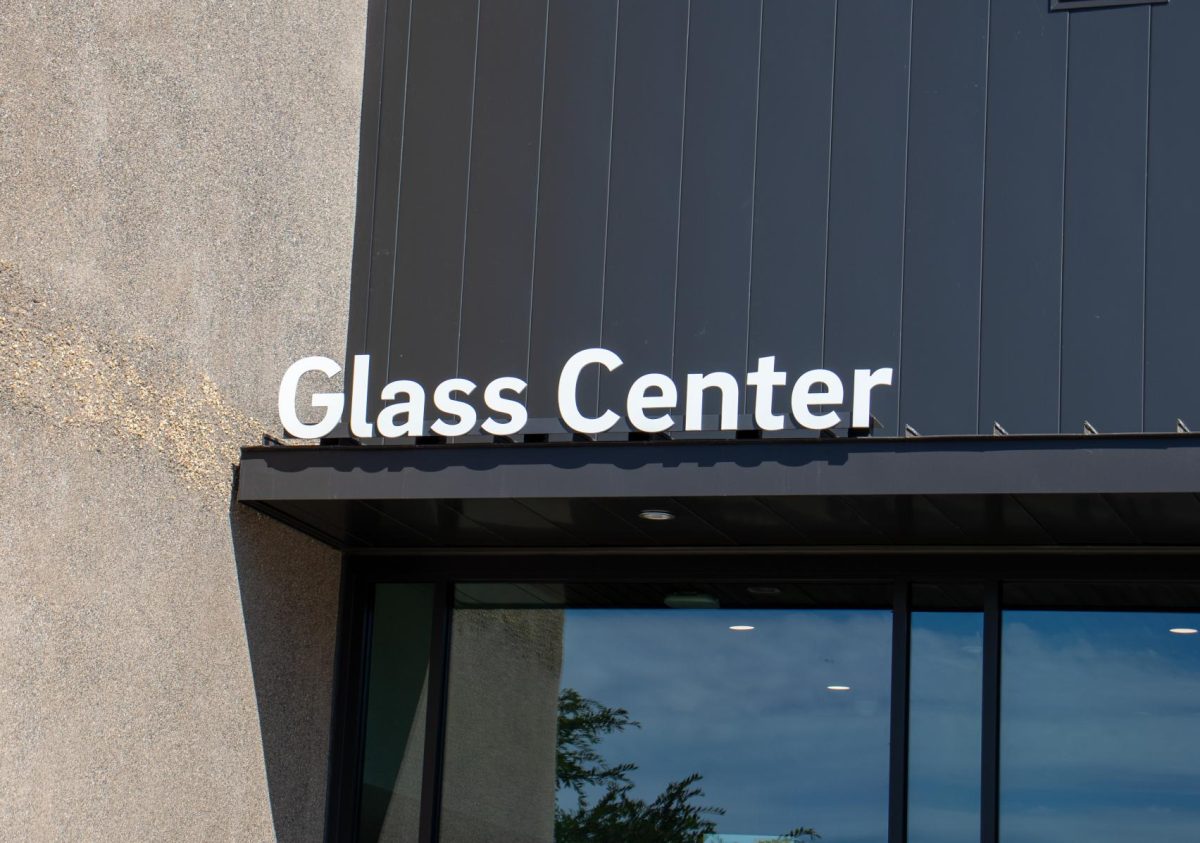Second year student shares her experiences with the Office of Disabilities (OSD) at UCSD.
When current sophomore UC San Diego student Nicole Muir was six years old, her first grade teacher suspected Muir had Attention-Deficit/Hyperactivity Disorder (ADHD). After relaying this to Muir’s mom, Muir ended up getting tested and was officially diagnosed with ADHD and has been living with it ever since.
Her ADHD and medication impacts her life in a myriad of ways; the medication makes her fidgety, she tends to be hyperactive, and without medication, she has trouble paying attention. Her ADHD also increases the likelihood of having anxiety and depression, both of which she has dealt with in her life.
Prior to college, Muir did not ask for or receive accommodations for her ADHD. She felt bad that her mom would have to go through a lot of administrative work, including dealing with forms from the doctor and her school, and it felt like too much of a hassle.
“I could have done it for the SAT or the ACT, but it’s just a lot of paperwork and it’s such a process to get those accommodations,” Muir told The UCSD Guardian. “I had friends who took advantage of those accommodations and I’m glad that they did, but it just seemed like such a process that I didn’t feel like I could deal with it and have enough control over making sure I could get it, so I didn’t.”
After starting at UCSD, Muir emailed The Office of Students with Disabilities (OSD) to ask for accommodations due to her ADHD.
OSD said, in an email to The Guardian, that they work “with students who have documented disabilities by reviewing documentation and, through an interactive process with the student, [determine] reasonable accommodations.”
In line with this protocol, Muir was interviewed by an OSD counselor, which took approximately an hour. She then got paperwork filled out by the therapist she sees for her anxiety and the psychiatrist she sees for her ADHD.
Muir’s accommodations include extended time on tests, extensions on assignments when necessary, bathroom breaks, a separate room to take exams in and requesting note-takers.
In the case of the note-taking accommodation, Muir notes that the OSD expects students to find their own notetaker at the beginning of the quarter. If the student can’t find one, they can ask the OSD to help — this is why the emails requesting students to be note-takers are sent out as late as week four or five.
An email from the OSD stated that students with disabilities in areas ranging from “psychological, psychiatric, learning, attention, chronic health, physical, vision, hearing, acquired brain injuries, and autism are eligible for accomodations” may request accommodations.
OSD also cites that the accommodations they offer include adaptive technology (such as screen reading or speech recognition software), alternative formats (such as electronic text, Braille and large print), captioning and sign language interpreting services, note-taking services, and exam accommodations.
After Muir first got her accommodations during her fall quarter of freshman year, she received an email asking her to get interviewed again. She was confused by this, so she emailed her counselor and was told to ignore it.
Things went smoothly during the winter quarter. Since students have to reapply for accommodations every quarter, Muir had to ask for them again during the subsequent spring quarter.
“You have to reapply for your accommodations… that frustrates me the most, like I have really severe ADHD, my condition isn’t really going to change, it doesn’t fluctuate at all,” Muir told The Guardian. “This is really the state that I’m going to be in for a long time. I know people usually say that ADHD goes away when you become an adult, but I think it’s more so that you’ve learned to mask the symptoms.”
Muir emailed the OSD asking for accomodations the Saturday before spring quarter started. Generally, the OSD sends students a portal where they can fill out their classes and desired accommodations. Muir anticipated this email as a response.
Instead, she received an email that told her to redo her forms and prove she had ADHD again.
Since it had been less than a year since she had asked for accommodations, Muir felt like it didn’t make sense, especially since her ADHD does not change over time.
She emailed her doctor for forms, and they were finally completed two weeks later, which was stressful for her. After sending these new forms to the OSD, her counselor told her that they were incorrect because they didn’t have dates on them, which was another hassle.
“I don’t know if it’s like bureaucracy or something, but there’s something fundamentally wrong with the OSD Office,” Muir told The Guardian.
The inefficiencies of the OSD is not just a UCSD phenomenon; it is a problem across all the UC campuses. In fact, in order to address these issues, a non-profit coalition called UC Access Now was founded by Megan Lynch (a UCLA alumna and UC Davis graduate student) on July 26, 2020 — the 30th anniversary of the Americans with Disabilities Act — to promote “accessibility and inclusion for all disabled people in the University of California community (as well as disabled visitors to UC locations).” UC Access Now continues to advocate for change and dismantle bureaucratic barriers to accommodations for students, staff and faculty that are impacted by disabilities.
The OSD stated, in an email to The Guardian, that “students need to request accommodations each quarter; however, in many cases, updated documentation is not required,” and also that “current students may request accommodations for the subsequent quarter as soon as they register for that quarter.”
Muir feels that the OSD is not consistent about emailing students about things.
“I know I’m an adult and I’m supposed to be responsible for myself, but like, I forget things sometimes,” Muir told The Guardian. “I think there’s just a little too much responsibility put on us as students with disabilities than there should be.”
Initially, Muir tried to navigate the problem by asking why she needed to provide new forms in the first place. However, she didn’t receive any conclusive answers and was scared to question authority further.
Muir remembers freaking out because she had assessments starting as early as Week 3 in her classes and wasn’t sure if she would receive her accommodations by then.
“I was told by a few people, when it was happening, they were like maybe you should report your counselor to the OSD office or talk to someone higher up,” Muir told The Guardian. “I was like I don’t know, I’m just a student, I’m just trying to make sure I have my accommodations, I don’t have the time to be dismantling OSD right now. I’m just trying to do math.”
Muir notes that perhaps the OSD struggles to operate smoothly because they are poorly funded. She adds that if she were asked to give more money to the school in order to better fund the OSD and ensure everyone has access to an equitable education, she would. When The Guardian asked OSD about the funding they receive, the OSD said that there was information available.
At the end of the day, though, Muir is grateful for her accommodations because it made her “college experience a lot easier and her education a lot more traversable.” However, the number of things sitting in the way of receiving those accommodations is often daunting.
“A big thing that I see a lot is people finding out that they have ADHD or thinking that they might have it, and I see a lot of students that do have ADHD and have had experiences with OSD typically caution them and be like ‘you need to vouch for yourself, you can’t expect them to do things for you, or to do things that I think most OSD offices at other colleges would do,’” Muir told The Guardian. “‘You need to make sure you get the paperwork even though it might not be necessary, you might need to do tests.’ People generally say ‘be prepared, buckle up, it’s not gonna be good,’ and it’s really sad that these people have to think — is it going to be hard to get these accommodations that I deserve?”
Photo courtesy of UCSD.














K.Martin • Mar 23, 2022 at 4:00 am
Very Useful Information!!
Petragallagher • Mar 23, 2022 at 3:58 am
Amazing article to know more here https://bigce.org/
Veronika • Mar 10, 2022 at 2:14 am
Everyone has the right to choose their own treatment. I chose safer supplements. The main thing is to know your deficiencies and find a good manufacturer of quality supplements. I found the best spirulina capsules here
Adam • Mar 7, 2022 at 8:29 am
For many, medications and various dietary supplements are part of life. That is why the business associated with the sale of dietary supplements will always be relevant. The main thing is to maintain quality and assortment. In addition, you can do this without actual production. I suggest you read more about it here https://www.privatelabelexpress.com/